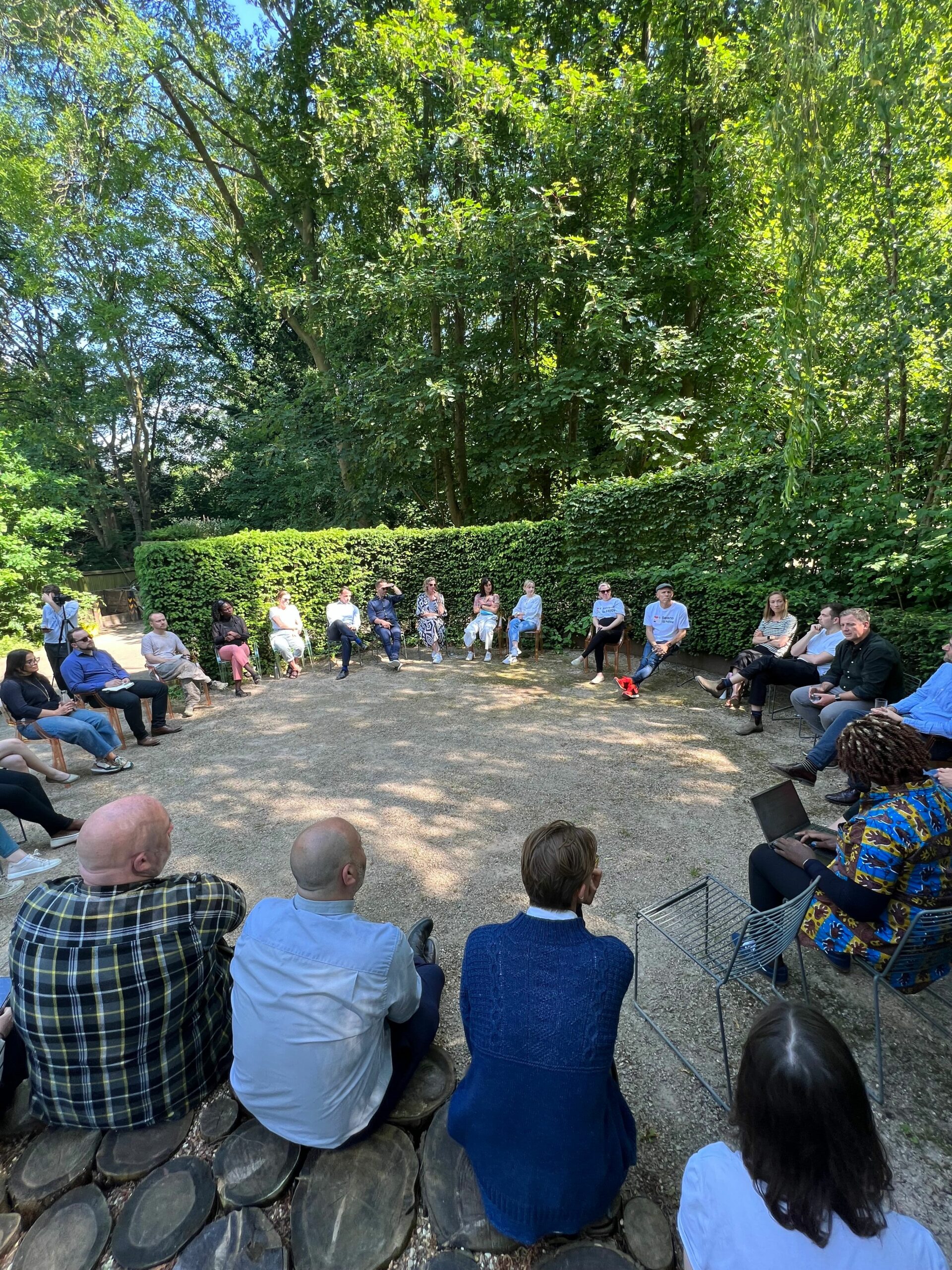06/12/2023 – 22:58
Beans have been a part of almost all cultures across the world; however consumption globally is declining or remaining stagnant, varying in the Global North and Global South, in urban and rural areas, and amongst people of diverse backgrounds. Some challenges affecting consumption include: a limited understanding of cooking methods, flatulence or gastric discomfort, perception that beans are a poor person’s food, lack of awareness about the nutritional and environmental benefits, and other factors.
On the 7th of June, 50 individuals from diverse professional backgrounds gathered for the Beans is How Stakeholder Meeting at OmVed Gardens in London. Connected by the historical and cultural importance of beans around the world, participants discussed how to shift consumption to achieve Beans is How’s goal of doubling bean consumption globally by 2028, with a special focus on the UK and Ireland.
The gathering further explored the role of chefs; the importance of storytelling, and the need to reach young people and use emerging digital platforms to raise awareness of beans while expanding Beans is How’s impact around the world. It was noted that policy has a significant role to play on enabling and sustaining increased consumption of beans, peas, lentils.
How can we achieve the goal of doubling global bean consumption in 5 years?
The Beans is How Science and Innovation Advisory Council is hard at work developing the campaign’s Theory of Change. These efforts will result in a Logical Framework to achieve our goal of doubling global bean consumption, while identifying important gaps that must be filled.
One of these identified gaps is determining a baseline for our work and the indicators to measure results. When doing this, “simplicity is key”, says Andrew Rzepa, Partner at Gallup. He is one of the Council Members who is helping to determine the best way to measure our success. Good data to track bean consumption remains rare, and it will be important to identify partners and existing research while identifying new areas of study. We can also identify proxy indicators, and collaborate with governments and partners who are already doing research.
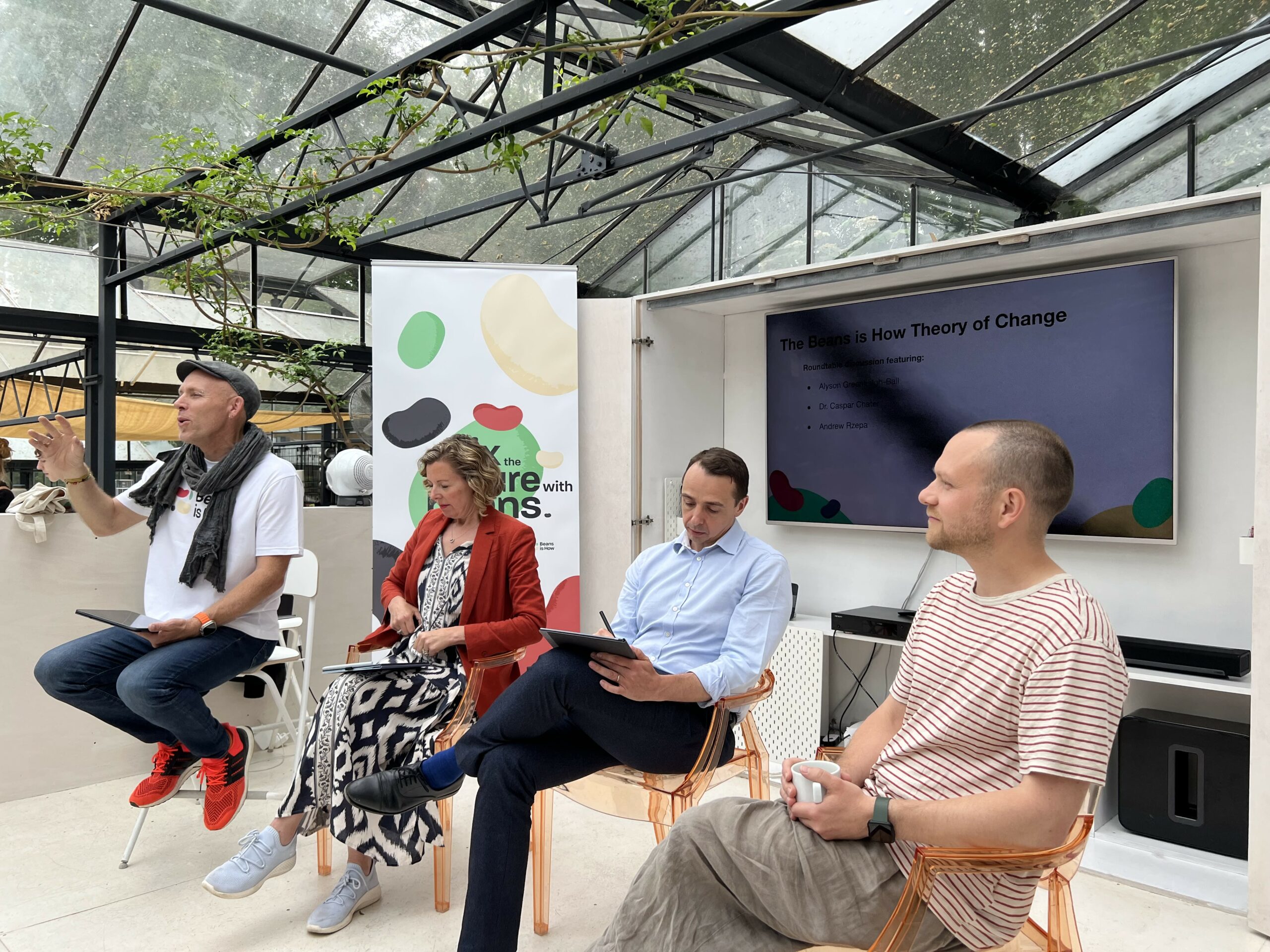
Similarly, Alyson Greenhalgh-Ball, Founder of Conscious Impact, and Senior Strategic Planning Consultant with the Beans is How highlighted the importance of an action framework which can be dissected into policy ‘asks’ as well as other impact pathways. These may include unlocking regulations for more positive public procurement, agriculture subsidies, investment in research, shifts in dietary guidelines, and food and agriculture regulations.
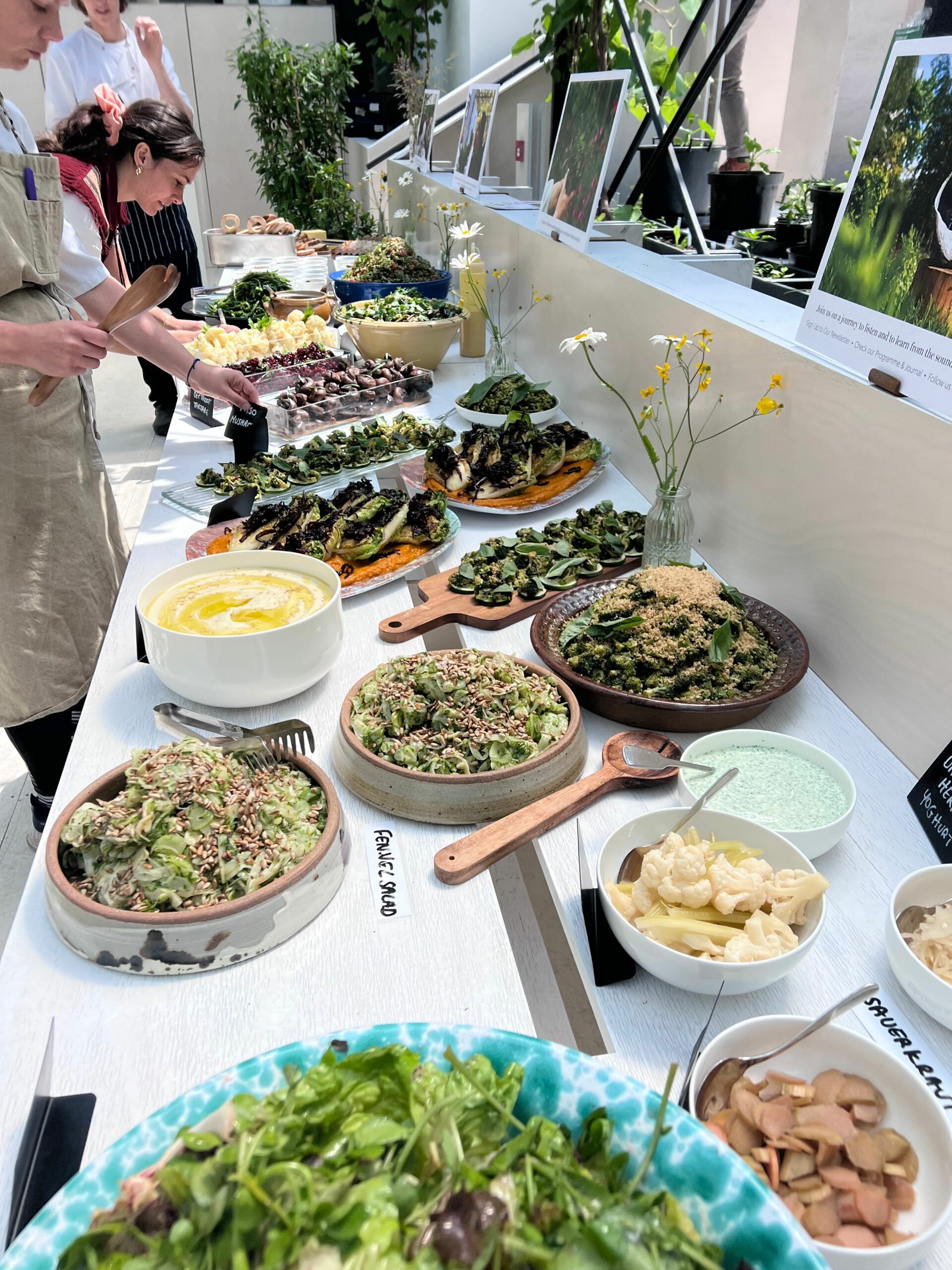
Dr. Caspar Chater of Kew Gardens raised the importance of promoting bean biodiversity, supporting farmers with different seed varieties while already projecting how climate change will affect production in the future. He underscored the need to embed our work within the principles of diversity and inclusion – both for the variety of pulses, as much as the people who are benefiting from our efforts.
The Bean Menu Challenge, and Chef Insights
For the first time, Beans is How presented the soon to be launched Bean Menu Challenge. Targeting restaurants, caterers, cafés, schools, and other food providers, this initiative aims to make beans a desirable food choice, influencing a global behaviour shift towards affordable, healthy and plant-forward diets.
Through a multi-pronged effort, this includes a direct call-to-action to chefs, an influencer and media strategy to spread awareness, an effort to rally public institutions and caterers, and complementary support for growers to enable local sourcing where possible.
Beans have always been a cost-effective part of many dishes for chefs. However, there is a critical need to amplify more bean varieties and varied uses of beans in menus as well as integrating beans in ingredients and processed foods such as flour, bread and pasta.
Chefs have a crucial role to play in reshaping the narrative around beans. Chef Conor Spacey, Culinary Director of FoodSpace Ireland, emphasised the significance of how dishes are described on menus, as this can influence customer choices when it comes to bean-based dishes. By altering the language from narrow definitions, chefs can inspire eaters to explore new tastes and cuisines outside their normal preference.
Chef Tim Blake, Regional Executive Chef working for Restaurants Associates at Google, London agreed, underlining the importance of taste and good food as a great starting point to shifting people’s desire to incorporate more beans into their diets. Although chefs are already creatively integrating beans into their meals, influential chefs can help utilise their platforms and share cooking techniques with the at-home chefs. This could help inspire a global movement of new pulse enthusiasts, breaking misconceptions of pulses as ‘boring’.
Finally, both Chefs noted the cultural significance of beans, and the need to empower chefs to experiment with and ensure a diversity of pulses. Some of the great ideas included:
- Using traditional, forgotten recipes, as well as new product and ingredient marketing
- Storytelling campaigns that promote traditional heirloom or indigenous pulses, from farm to fork
- Engaging in the soon to be launched Bean Menu Challenge, which will challenge food service providers to ensure beans are on the menu.
A new photo call to increase bean imagery
The collection of imagery featuring beans is small. The imagery that exists is generic, repetitive and often missing one key feature – people.
Where the Leaves Fall is a digital and print magazine that explores our human connection with nature. As part of their contribution to the Bean Coalition, we will be collaborating to launch an open photo call to increase the quantity and quality of bean photography. These photos will be featured in the fall, and be available for use in digital communications campaigning and future exhibitions.
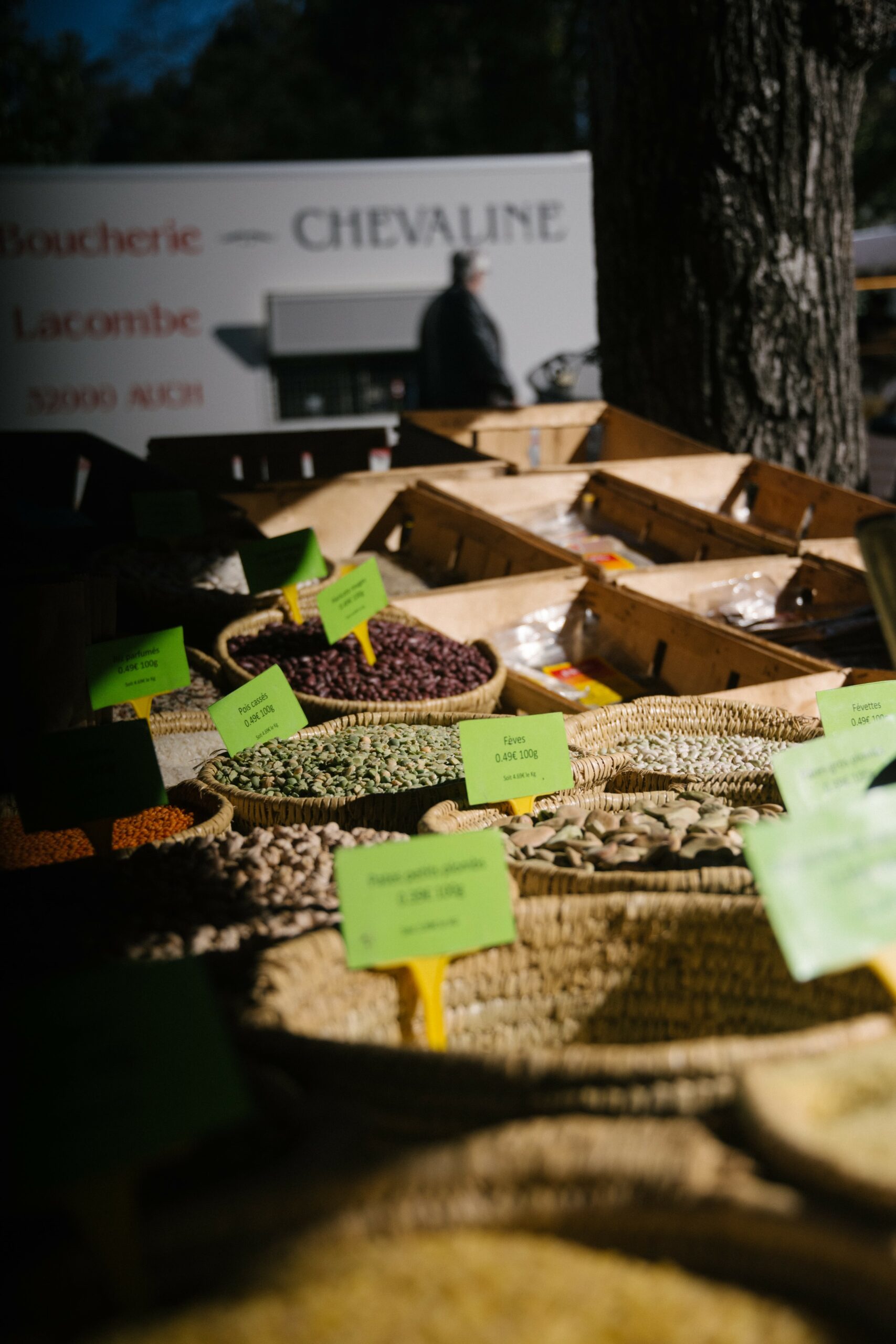
Spotlighting beans in the UK and Ireland
The day ended with a roundtable discussion on how to take these learnings and apply them towards creating a coordinated approach in the UK and Ireland. To achieve this, we are excited to be working closely with our existing Bean Coalition members as well as extending an invitation for new partners to join us.
We had the opportunity to learn from local bean companies, Bold Bean Co. and Hodmedod’s about their unique efforts to bring high-quality pulses direct to British consumers. Ed Whelpton, Co-Founder of Bold Bean Co. shared how they will soon launch a cookbook which will support the at-home-chef with learning how to elicit even more from their beans.
Hodmedod’s was started upon the realisation that some of the best bean varieties produced in Britain were exported and the rest fed to livestock. They therefore set off to re-introduce indigenous varieties, some of which are being grown at OmVed Gardens. According to Nick Saltmarsh, co-founder of Hodmedod’s, chefs play a unique role in re-introducing these varieties to the public and educating them on the best cooking techniques.
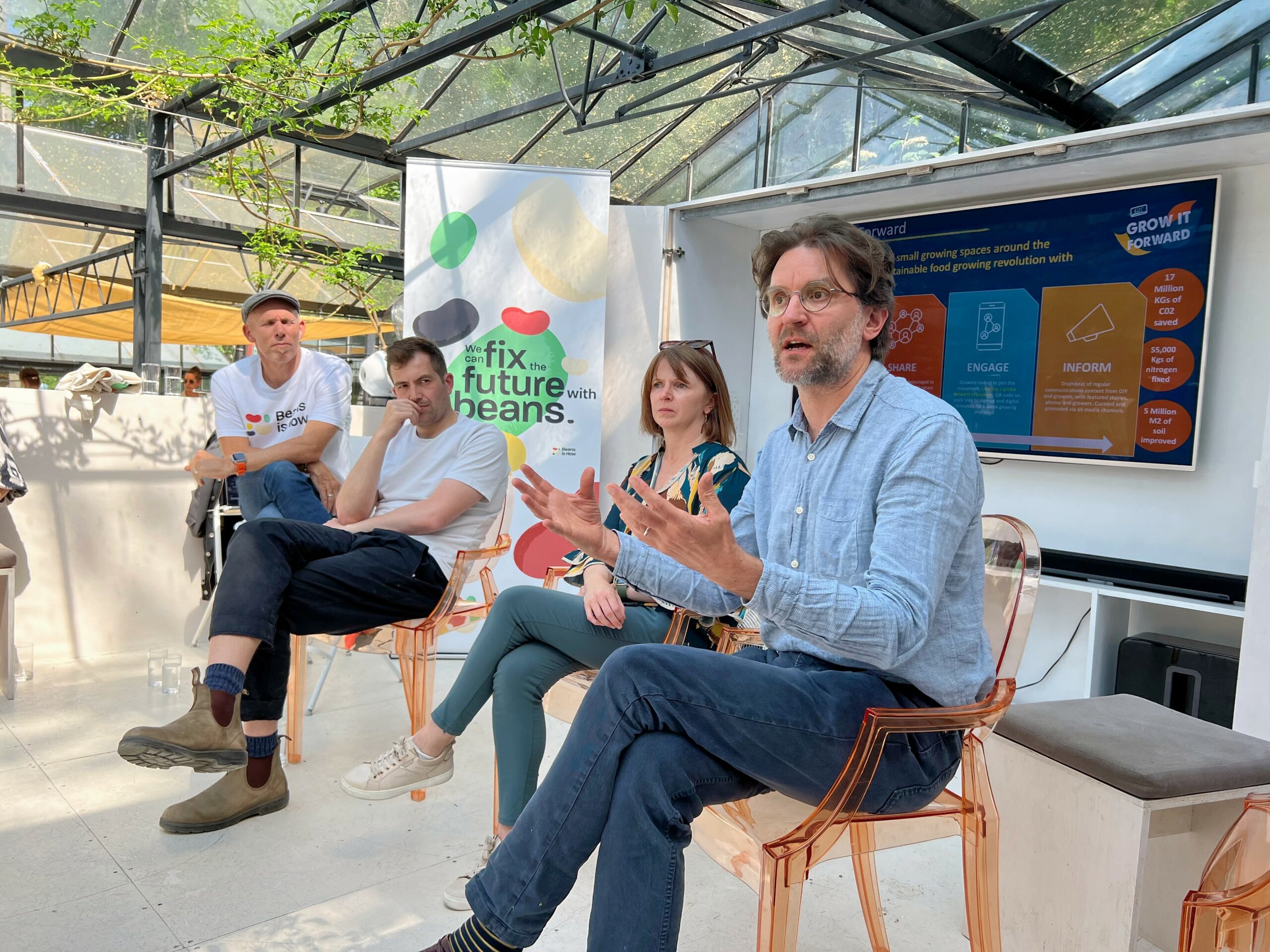
There is growing recognition about the necessity for a coordinated policy effort, with several members acknowledging the challenge posed by policy restrictions in food labelling and the need to continue to support local farmers and instigate healthy trade. The University of Oxford is already leading efforts to coordinate increased pulse consumption through the AgriFood4NetZero Network+ working group and BeanMeals program. Other important actors, like The Kraft Heinz Company, AGT Foods, Royal Botanic Garens, Kew, and WBCSD also lent their advice and thoughts about how to advance this agenda.
In Ireland, Grow it Yourself (GIY) aims to inspire, educate and enable a global movement of food growers to nourish people and the planet. Studies show that 50 – 70% of people that grow their own food, are most likely to change their diet to more plant-based. Engaging people in the act of growing their own food brings positive change in their attitudes, knowledge and behaviour around food changes. This is known as food empathy. GIY’s ‘Grow at School’ food education programme helps students immerse themselves into the world of sustainable foods.
Across the UK, there is growing momentum to integrate beans in school meals and into school gardens. Organisations like ProVeg UK, Made in Hackney, and Global Generation are already leading the charge in this arena.
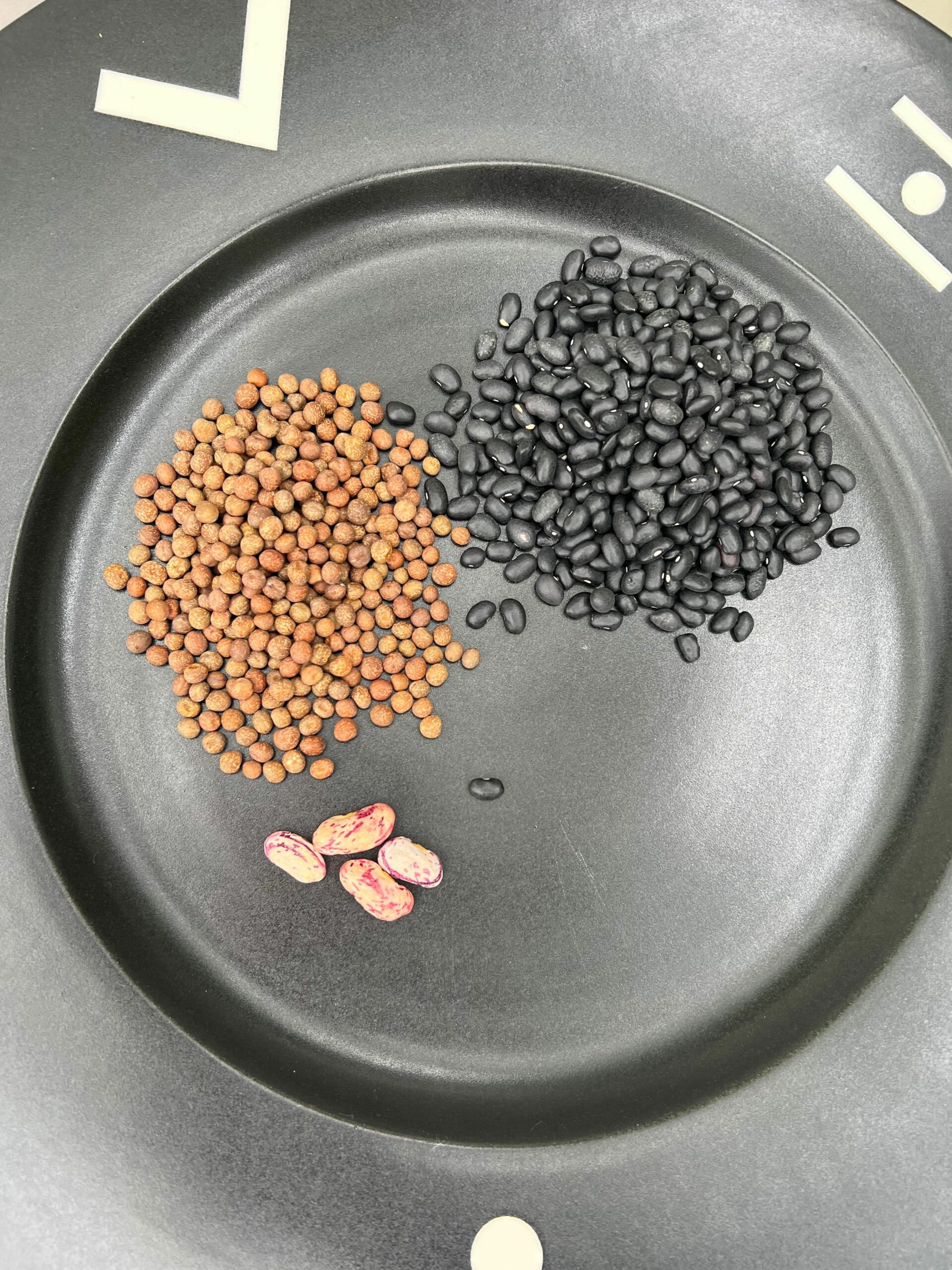
Furthermore, there is considerable interest in coordinating awareness campaigns through media and influencers to fight preconceived notions about beans, highlighting how shifts in pulse consumption can be positioned within the context of lifestyle trends. However, it is important to approach these efforts cautiously to ensure that these are carefully positioned to lead to sustainable, long-term change, and not just a flash in the pan.
Final thoughts
This incredible workshop united stakeholders from diverse backgrounds to address the shared goal of promoting increased bean consumption as a key solution to our global health, climate and cost-of-living challenges.
Our work will continue to unlock momentum around the world, with more engagement, and new exciting releases in the coming months, including the Bean Menu Challenge, and the Theory of Change work.
We are very grateful to the OmVed team, who nourished our bodies and stimulated our minds with their beautiful space, reminding us that all people deserve access to good food that is also good for the planet.
To learn more, please visit www.beansishow.org
